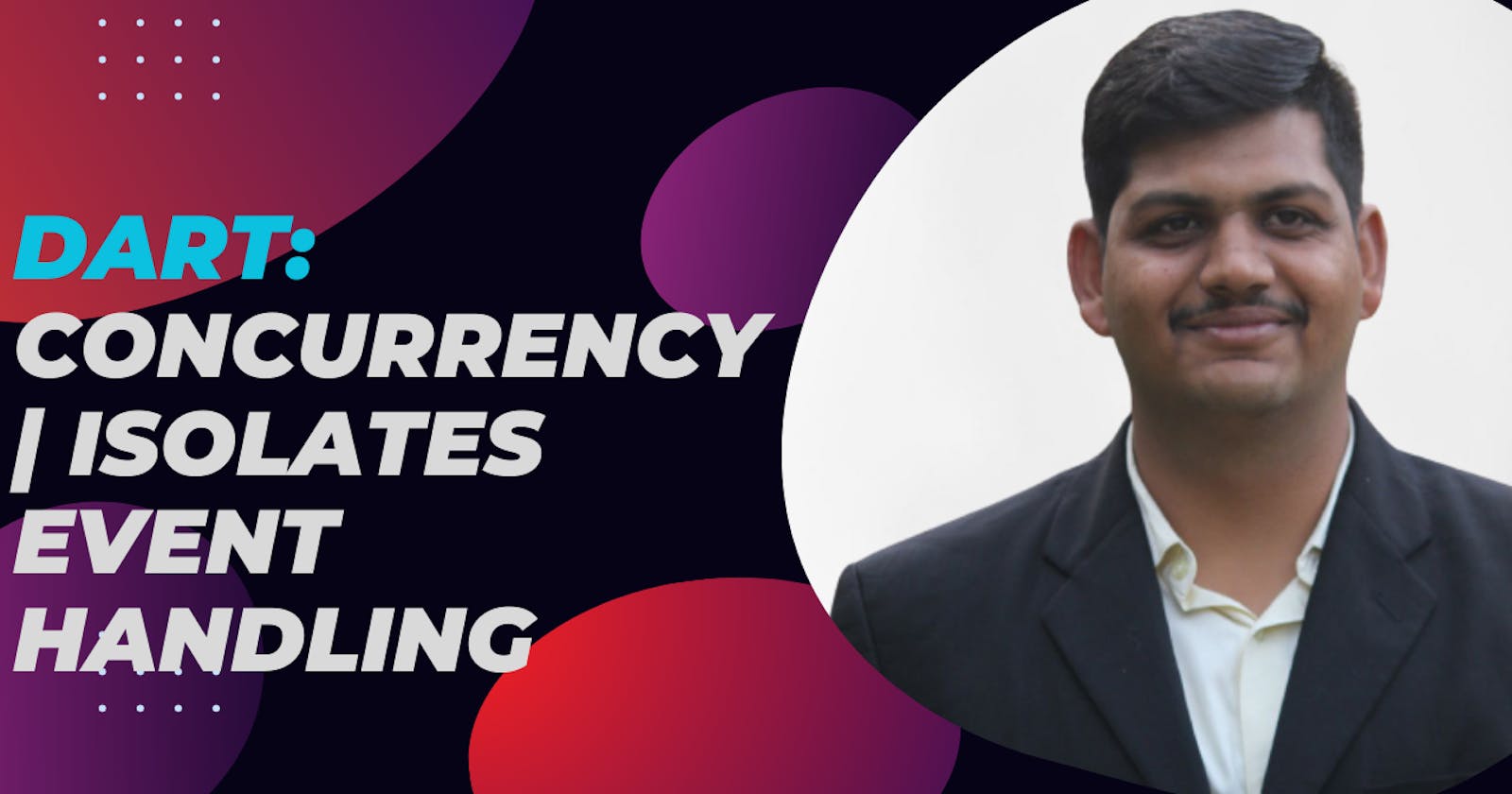Introduction: In the realm of Dart's concurrency, isolates play a crucial role in executing tasks concurrently. As we continue our exploration, let's delve into the fascinating world of isolate event handling. In this blog post, we'll unravel how isolates can communicate and share information through events, enabling seamless coordination in concurrent applications.
Basic Event Handling in Isolates: Dart isolates communicate with each other using a message-passing mechanism. This allows isolates to share data and coordinate their activities. Events, in this context, are messages sent between isolates to trigger specific actions.
Example: Basic Event Handling
import 'dart:isolate';
void main() async {
// Spawning two isolates
Isolate.spawn(isolate1, 'Isolate 1');
Isolate.spawn(isolate2, 'Isolate 2');
}
void isolate1(String name) {
print('$name: Started');
// Sending an event/message to isolate2
sendEvent('Hello from Isolate 1', 'Isolate 2');
}
void isolate2(String name) {
print('$name: Started');
// Receiving and handling events/messages
receiveEvent();
}
void sendEvent(String message, String recipient) async {
// Creating a SendPort for communication
final receivePort = ReceivePort();
final sendPort = receivePort.sendPort;
// Spawning an isolate and passing the SendPort
await Isolate.spawn(eventReceiver, sendPort);
// Sending the message to the specified isolate
sendPort.send(message);
// Closing the ReceivePort
receivePort.close();
}
void eventReceiver(SendPort sendPort) {
// Receiving and handling the message
sendPort.listen((message) {
print('Received message: $message');
});
}
Explanation:
isolate1 and isolate2 represent two concurrently running isolates.
sendEvent function is responsible for creating a SendPort, spawning a new isolate (eventReceiver), and sending a message to it.
eventReceiver listens for messages and handles them.
Advanced Event Handling: StreamController For more complex scenarios, Dart provides the StreamController class, allowing isolates to communicate through streams, providing a powerful and flexible event handling mechanism.
Example: Advanced Event Handling with StreamController
import 'dart:async';
import 'dart:isolate';
void main() async {
// Spawning two isolates
Isolate.spawn(isolate1, 'Isolate 1');
Isolate.spawn(isolate2, 'Isolate 2');
}
void isolate1(String name) {
print('$name: Started');
// Creating a StreamController for communication
final controller = StreamController<String>();
// Sending an event/message to isolate2
controller.sink.add('Hello from Isolate 1');
// Closing the StreamController
controller.close();
}
void isolate2(String name) {
print('$name: Started');
// Creating a StreamController for communication
final controller = StreamController<String>();
// Receiving and handling events/messages
controller.stream.listen((message) {
print('Received message: $message');
});
// Closing the StreamController
controller.close();
}
